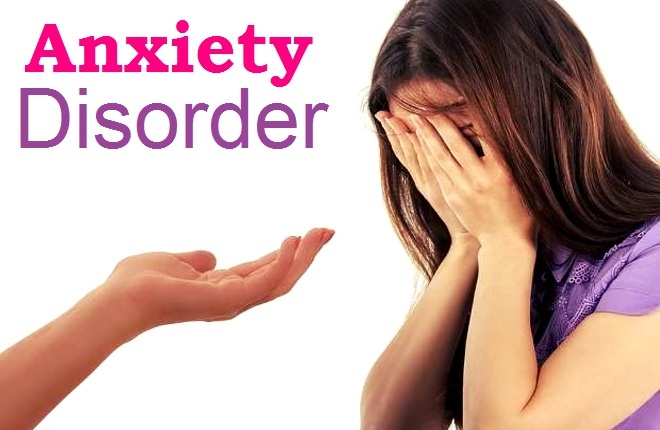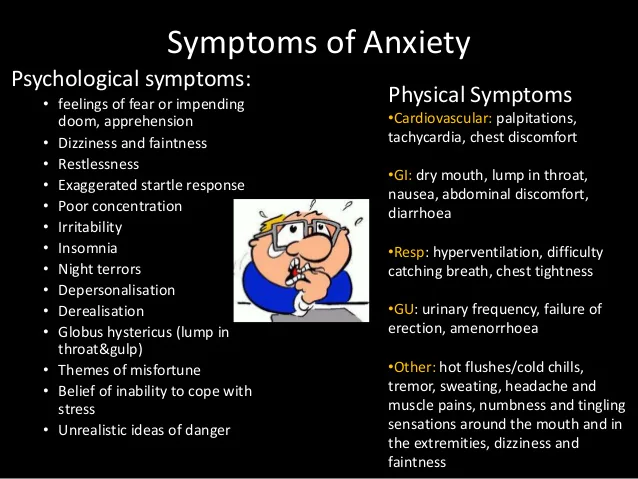Medication for Anxiety Disorder and How to Manage
Author: Giselle Robel
Giselle Robel
Category: Health
Anxiety disorder, it’s where your anxiety is persistent and is impacting your life on a recurrent basis. Anxiety disorders are treatable with medication, counseling, and therapy techniques such as cognitive-behavioral therapy. There are also a number of lifestyle methods that you can use to reduce your anxiety level.
While drugs don't cure anxiety, they can help you manage your symptoms. You can function well and feel better in your day-to-day life.
Many types of medications are available. Because every person is different. You and your doctor may have to try several medications to find the right one for you.
Types of Medication

Benzodiazepines as Medication
Benzodiazepines such as Valium, (diazepam), Xanax (alprazolam), Klonopin (clonazepam), and Ativan (lorazepam) are sometimes used to treat anxiety for a short-term period.
This medication is used to treat generalized anxiety disorder and may be used as a second-line treatment for panic disorder and social anxiety disorder, with antidepressants being the front-line choice.
Benzodiazepines induce muscle relaxation and reduce other symptoms related to anxiety. Medication such as these can cause addiction if used on a long-term basis.
Beta-Blockers as Medication
Beta-blockers are used to control heart disease. They help reduce your heart rate and blood pressure. Beta-blockers can help control, trembling, sweating, and other physical symptoms of anxiety.
Sectral (acebutolol), Tenormin (atenolol), Inderal LA (propranolol), are a few beta-blockers and can be for a short period only. Common side effects include weight gain, fatigue, and cold hands and feet. Asthmatic or diabetic patients are not advised to use Beta-Blockers.
Buspirone as Medication
For chronic anxiety long-term treatment, you can use BuSpar (buspirone). It’s a treatment for generalized anxiety disorder also. It increases the action of serotonin, a neurotransmitter that helps improve mood and reduce anxiety.
Buspar takes one to two weeks for the initial effects to be felt and can take four to six weeks for the full effect.
It is not considered to be effective for the treatment of anxiety attacks, that’s why it must be taken consistently in order to have an effect.
It is less sedating than many of the other commonly used anxiety medications. And it is non-addictive and has a low risk of overdose. Possible side effects include dizziness, headache, nervousness, and trouble sleeping.
Selective Serotonin Reuptake Inhibitors (SSRIs)
Often used as a first-line treatment for anxiety disorders, selective serotonin reuptake inhibitors (SSRIs) include medications like Paxil (paroxetine), Prozac (fluoxetine), Zoloft (sertraline), and Lexapro (escitalopram). SSRIs are considered antidepressants and they increase the amount of serotonin in the brain, which helps improve mood.
Side effects include headaches, dry mouth, drowsiness, sexual dysfunction, diminished sex drive, and weight gain. As with many antidepressants, they can increase the risk of suicidal ideation (thinking about or planning suicide), particularly in children, teenagers, and young adults.
Serotonin-Norepinephrine Reuptake Inhibitors (SNRIs)
Another common categories of medications used for anxiety is the serotonin- norepinephrine reuptake inhibitors (SNRIs), which are antidepressants, and include medications like Effexor (venlafaxine), Cymbalta (duloxetine), and Pristiq (desvenlafaxine). SNRIs increase the levels of serotonin and norepinephrine to help boost mood and are similar in effectiveness to SSRIs. Side effects are similar to those of SSRIs.
Tricyclic Antidepressants
In treating anxiety you can also use Tricyclic antidepressants.
Common medications in this class are Tofranil (imipramine), Elavil (amitriptyline), Pamelor (nortriptyline) and Anafranil (clomipramine).
Side effects may include constipation, dry mouth, blurry vision, a decrease in blood pressure when standing, and urinary retention (decreased ability to urinate).
Home remedies for anxiety
There is a variety of at-home remedies that can help ease your anxiety symptoms. Several mediations can also be used in addition to taking medications.
Examples of these interventions include:
Exercise
Exercise can help to reduce stress and enhance your overall sense of well- being.
It helps produce neurotransmitters known as endorphins. These neurotransmitters are your body's natural painkillers and can also improve your sleep quality.
Reports say that even short exercise sessions (about 10 minutes at a time) are effective in helping lift your mood.
Meditate
Taking 15 minutes of quiet time and meditation to focus on deep breathing and relaxation can help calm your anxiety. You can listen to music or repeat a motivational mantra on a regular basis. Yoga can also help relieve stress.
Try chamomile
Sipping chamomile tea or taking a chamomile supplement might help to ease anxiety symptoms.
The study shows that those who took 500-milligram chamomile supplements three times per day on a daily basis had a reduction in moderate to severe generalized anxiety.
Drinking chamomile tea has also been shown to help in reducing anxiety.
Smell aromatherapy oils
Smelling diluted aromatherapy oils can help to reduce anxiety.
Examples of essential oils used to provide anxiety relief include:
- lavender
- neroli
- chamomile
Avoid caffeine
Sometimes caffeine can make a person feel jittery and more anxious. Avoiding it can help some people reduce their anxiety.
Talk with your doctor
Your doctor can help you find the best course of treatment for your anxiety disorder. Treatment will likely include psychotherapy and medication.
Be sure to follow their instructions when taking anxiety medications and let them know about any side effects you have. Also, ask any questions you have about your condition or your treatment, such as:
- What side effects could I have from this medication?
- How long will it take to start working?
- Does this medication interact with any other drugs I'm taking?
- Can you refer me to a psychotherapist?
- Could exercise help relieve my anxiety symptoms?
If you feel a medication isn't giving you the desired results or is causing you unwanted side effects, talk to your doctor before you stop taking it.













